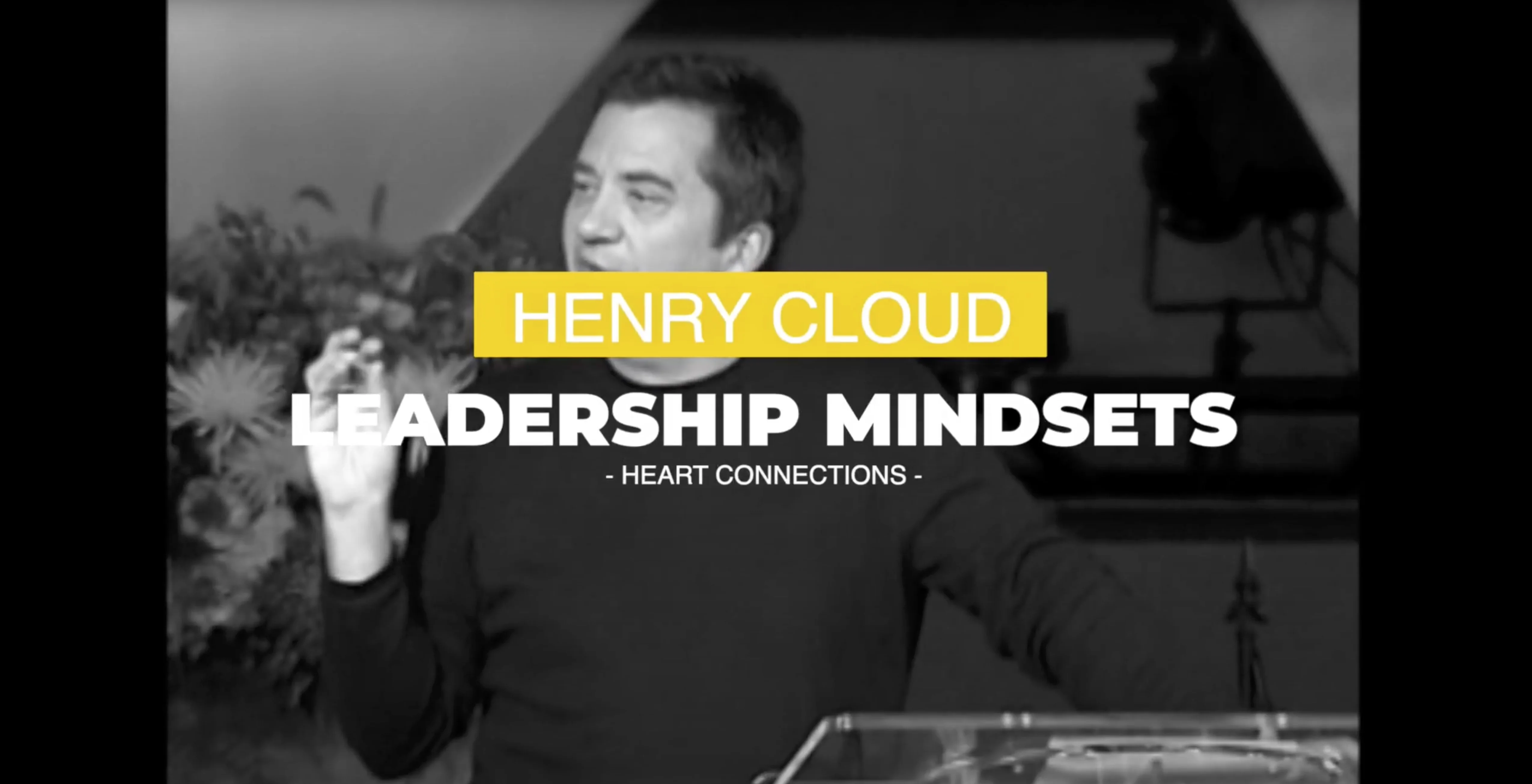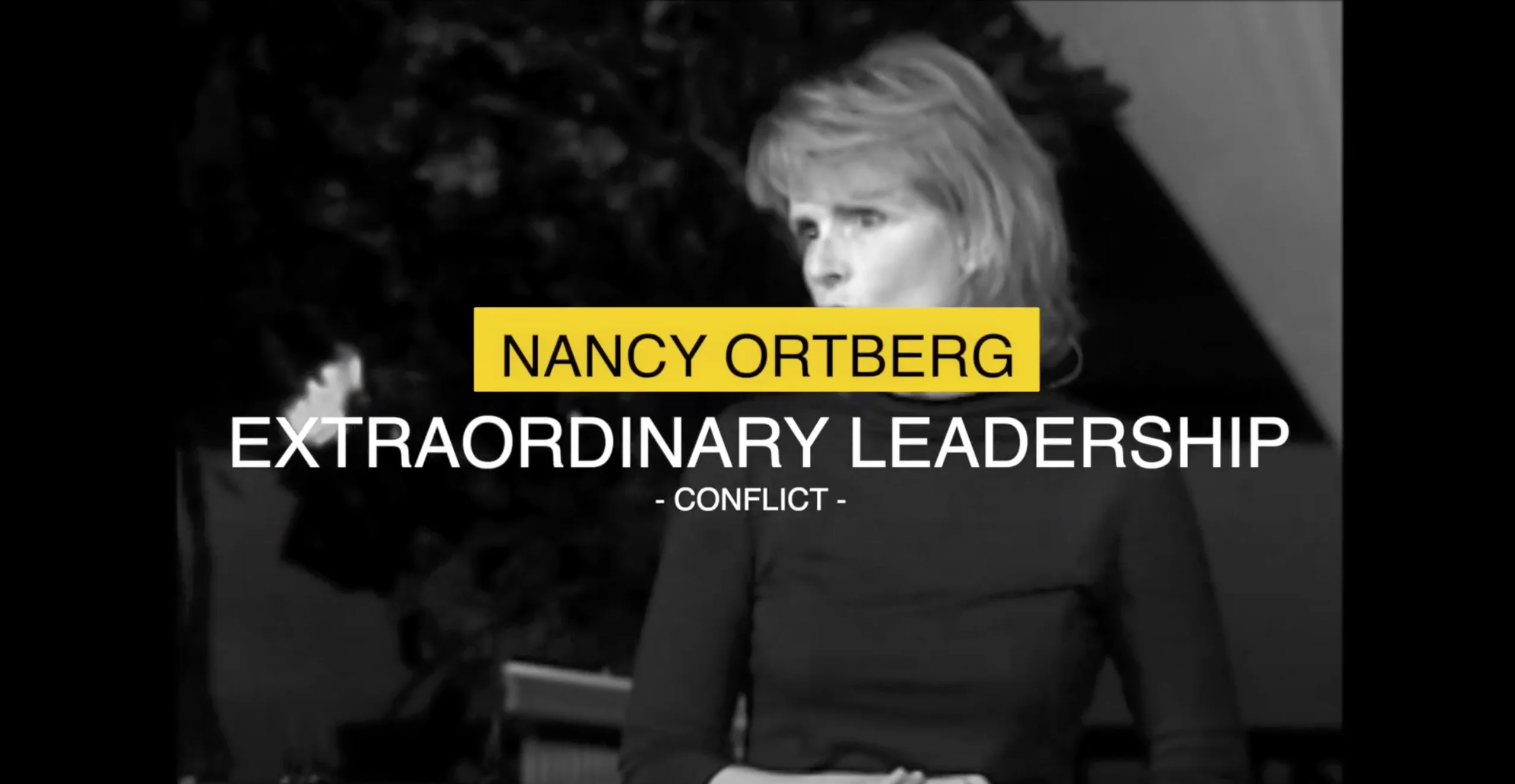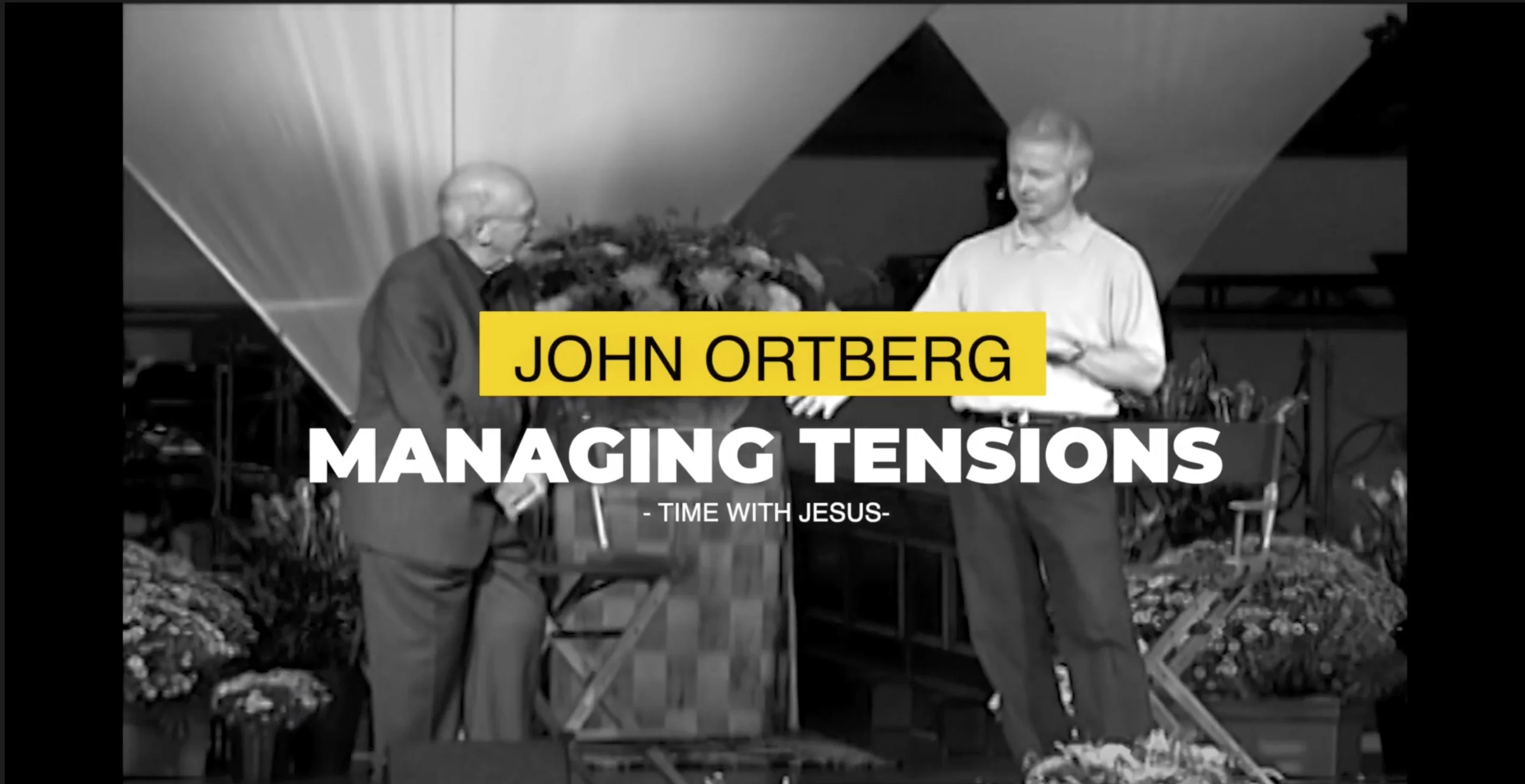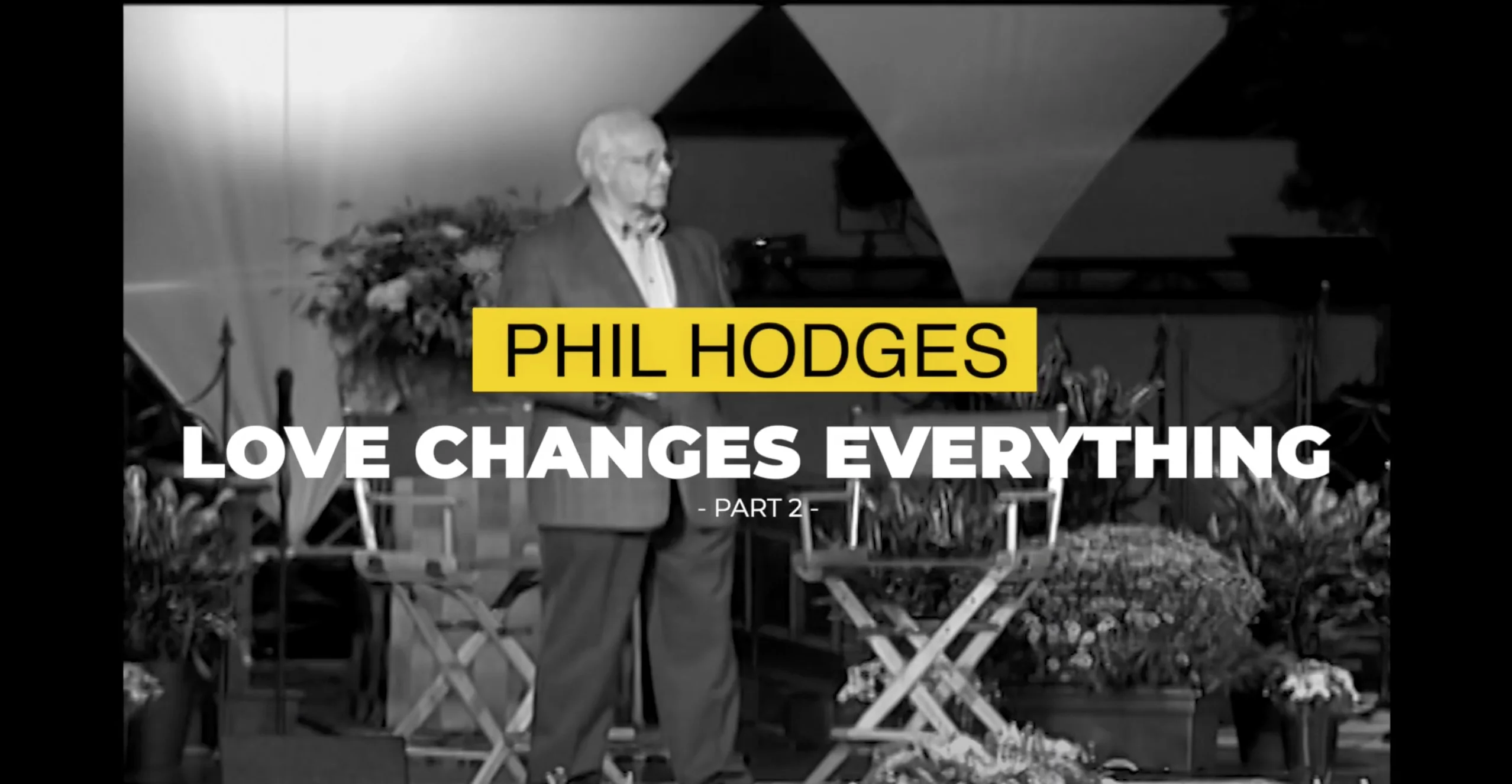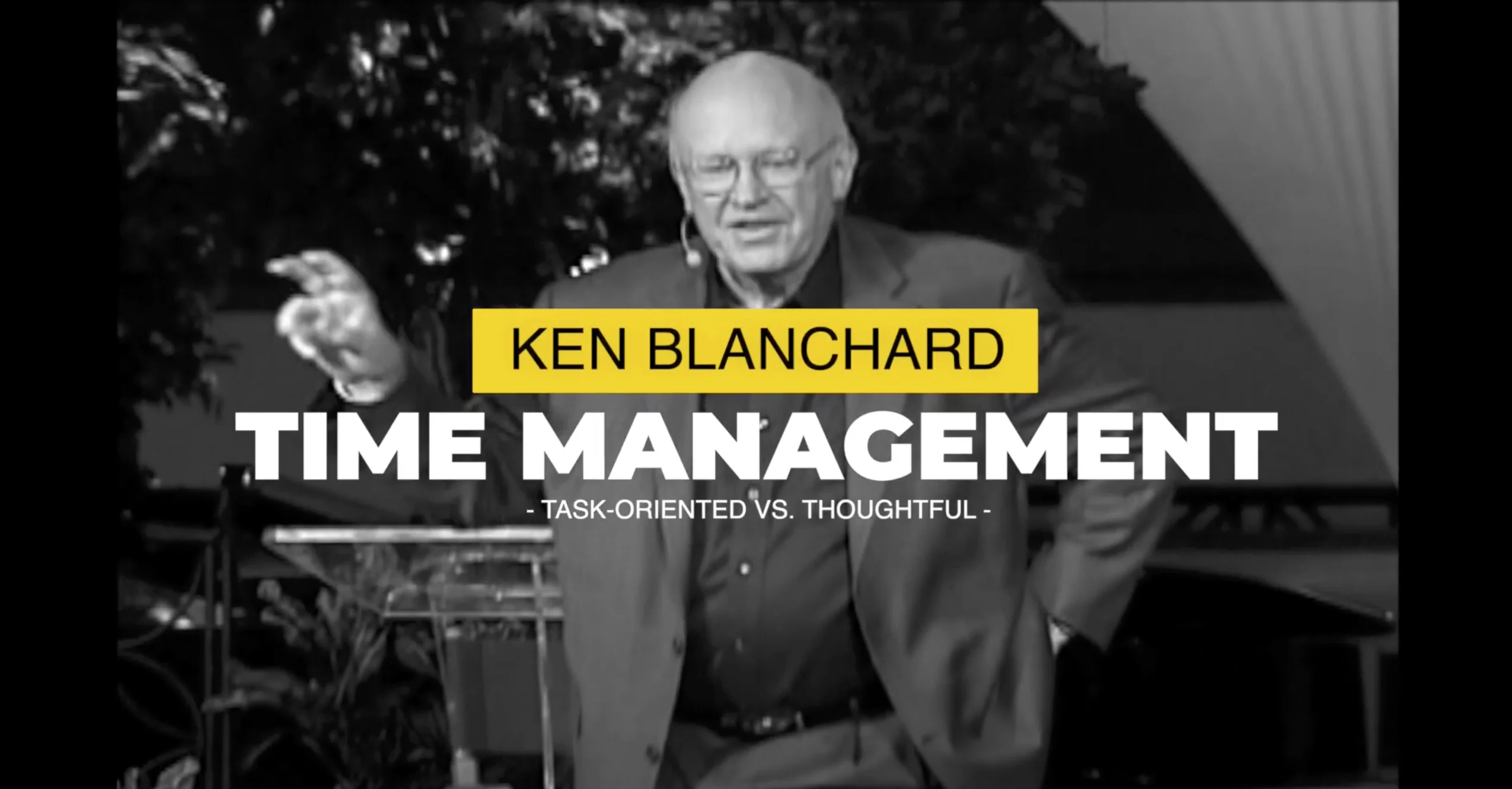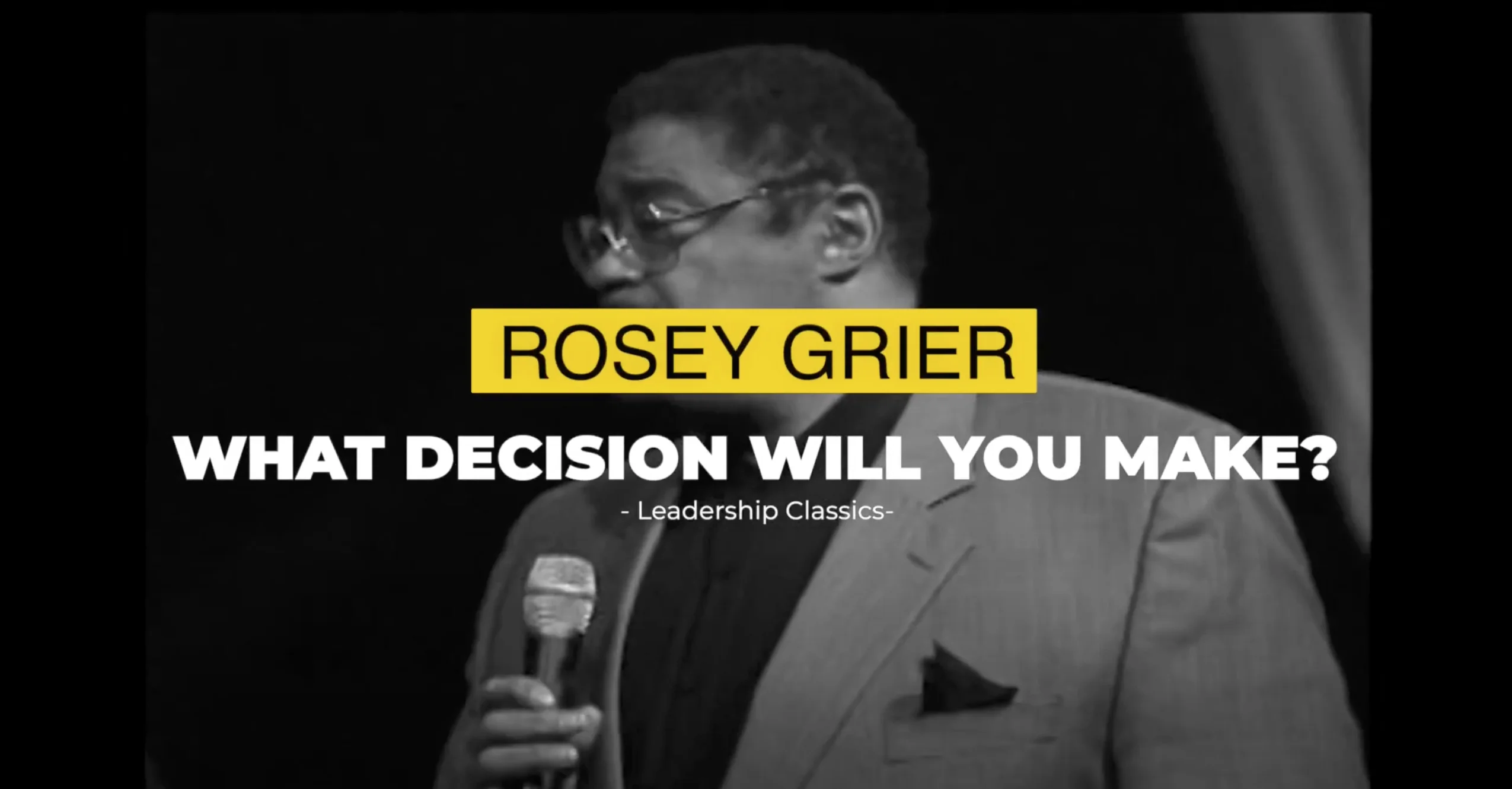
eBook unlocked!
The focus in leadership has often been on skills and tactics rather than transforming leaders themselves. There is a better way: 6 Lessons From the Greatest Leader Role Model, Jesus
LESSON 1
Break Out of Your Isolation Booth
We get focused on fixing the things we have declared as the most important or most critical aspects of our areas of responsibility. This narrowing of focus often contains the hidden pleasure of allowing us to justify working in our competency “sweet spot” with heightened chances for personal gratification and fulfillment.
We have a tendency to see those problems or issues we know how or like to fix.
If your favorite tool is a hammer, you will have a tendency to look for nails that need pounding and let the sawing and sanding go for another day.
When we do this, we make the convenient assumption that everything that is going right will continue to do so without maintenance, or if there are problem areas outside our sweet spot, they will evaporate on their own. The end result of this self-delusional mind game is that we end up in isolation booths of our own making, out of touch with the realities of what is truly going on around us.
A symptom of this isolation booth phenomenon is a progressive restriction of how we obtain information about the areas of our leadership responsibility that fall outside our sweet spot focus.
As a corporate human resources manager for a large manufacturing organization, I found that in a routine dominated by executive meetings, it was easy for me to allow my assumptions on the health of the organization to be formed on the basis of secondhand information in the form of activity reports and the grievances forwarded to me by the local union.
As chairman of the Elder Council of my local church, I recall a number of instances when reports came that there was a big uproar among the congregation about an issue that demanded immediate attention only to find out with a little probing that it really was one upset person voicing concern to lots of people rather than a general concern.
How do you avoid being locked away in an isolation booth of false assumptions?
HERE ARE TWO SUGGESTIONS:
I. Which of the following best describes the source of information you rely on in areas of your ministry responsibility you are least likely to attend to naturally:
Note: The further away from Level 1 you find yourself, the more vulnerable you are to wake up one morning and find out that while you tended to your sweet spot concerns and issues, the world around you and your leadership effectiveness have gone in different directions.
II. Schedule a “Day in the Life Of” experience for yourself in an area of business or ministry where you have had the least firsthand experience over the past twenty-four months.
Ask permission to shadow somebody during a normal work day who is engaged in responding to all those edicts, directives, policies and emergency requests for service that come down from somewhere in the hierarchy including your own office. Promise to make no reports, offer no suggestions or interrupt the flow of the day. Just watch, listen and learn. You will return to your own routine wiser and with a greater respect for the people who live and work in your real world.
LESSON 2
Begin the Journey of Forgiveness
Forgiveness is the way for a heart grounded in the unconditional love of God to respond to the imperfections of others. Jesus established the centrality of forgiveness in His leadership when He cried out from the cross, “Father, forgive them, for they do not know what they are doing” (Luke 23:34 NIV).
One of the most frequent tests of whether we have the heart attitude required to lead like Jesus is how we deal with the failures of those we lead to perform according to plan. Remember, getting things roughly right is simply part of the learning process that precedes getting things exactly right on a consistent basis.
Leaders seeking to grow and develop people as an end goal of equal importance to results need a healthy capacity to forgive, correct, and move on. EGO-driven leaders, impatient for results, are quick to judge and discount less-than-perfect efforts as failure rather than to forgive and redirect.
Forgiveness is a supernatural act, not a natural response to being hurt or let down. It is an act of the will, a choice, of one who has surrendered control to a higher court of judgment. Forgiveness is a hall- The Way of Forgiveness Ken Blanchard and Phil Hodges mark of what it means to lead like Jesus. He taught forgiveness to His disciples, He practiced it with those who betrayed Him, and He granted it willingly to those who participated in His death on the cross.
As leaders, the journey of forgiveness must start with us.
Unlike Jesus, we all fall short of 100 percent in our journey as leaders. Sometimes we make mistakes that could have been avoided. Sometimes we say or do things in the heat of the moment that we regret. If our EGO is wrapped up in our performance and the opinion of others, we will be unable to forgive our own shortcomings, let alone anyone else’s.
Let’s look, for just a minute, at what Scripture says about this. Romans 14:13 says, Forget about deciding what’s right for each other. Here’s what you need to be concerned about: that you don’t get in the way of someone else, making life more difficult than it already is (MSG). In James 4:11 we find, Do not speak evil of one another, brethren. He who speaks evil of a brother and judges his brother, speaks evil of the law and judges the law. But if you judge the law, you are not a doer of the law but a judge (NKJV).
The opposite of forgiveness is judgment. Your motivation for doing something is as important as what you do. In theological terms, judgment is pointing out a fault with a view to condemnation. On the other hand, discernment is pointing out a fault with a view to correction or restoration. When we withhold forgiveness, is it because we are sincerely trying to correct or restore—or is it because there is some benefit to us in condemning?
Forgiveness is a particular dimension of an even broader element of the leadership of Jesus—grace.
PAUSE AND REFLECT
The price of forgiveness is letting go of the right to require either payment or an apology for a wrongdoing. Whom do you need to forgive in order to restore a relationship with someone who let you down?
(Adapted December 2006 from Lead Like Jesus: Lessons from the Greatest Leadership Role Model of All Time, © Ken Blanchard and Phil Hodges, 2005)
LESSON 3
Develop a Daily To-Be List
Approaching each new day as a series of things to do can be a nasty habit.
Lead Like Jesus believes that anytime anyone influences the thoughts, actions or behaviors of another they are engaging in leadership. So as a parent or a CEO, a coach or a doctor, YOU are a leader.
Whether as a life role or organizational leader, approaching each new day as a series of things to do can be a nasty habit. We are not only tempted to start working on the list we went to bed with but to quickly include the new onslaught of e-mail, voice mails, faxes, etc. that may have accumulated during the night or to be quickly derailed by the ever-necessary tasks of home, family and volunteer responsibilities.
It is easy to surrender our sense of self-worth to the score card of our never ending to-do lists.
. . Approaching each new day as a series of things to do can be a nasty habit.
Wrapping a little preemptive prayer around our own predetermined personal agendas may seem as prudent as recharging the cell phone overnight. But, it may have little to do with making the day any more significant or satisfying. No matter how urgent or high-purposed your to-do list may seem, when the price paid for its completion is a gradual loss of a sense of being and meaning separate from performance, you have made a bad choice. Remember, Satan would love for you to buy into his philosophy that your self-worth is equal to your performance plus the opinion of others.
A partial antidote to the “I am my to-do list” syndrome is to develop your Daily To-Be List before you finalize your To-Do List. The thought that we were created as Human Beings not Human Doings reminds us that God loves us and relates to us on the being, not the doing, level.
If He did it the other way round, we would never have any confidence that we have done enough or done the right stuff to relax in His company. We also might end up adding a few things to our to-do list to feed our own egos and appetites that weren’t on God’s agenda in the first place.
Here is a plan for developing a Daily To-Be List that will help you sort out the priorities of the day during a time when the pressure of To-Do becomes overwhelming. There is great peace and confidence in the process because of God’s grace that He always provides.
- Take a few quiet moments at the beginning of the day to ask God expectantly to fill your mind with how He would have you be today in your life role and organizational leadership responsibilities.
- Write down what comes to mind as your To-Be List.
- Thank God for being willing to use you today in bringing in His kingdom through your life role and organizational leadership responsibilities.
- Ask God to open your heart, mind, eyes and ears to how much He loves each person you will meet today and to help you treat them accordingly.
- With these thoughts in mind review your To-Do List and see whether there are any items that are in conflict with your To-Be List and modify or eliminate them as appropriate.
- At the end of the day review your To-Be List as your score card for the success of the day. Then put down the results at the foot of the Cross and rest assured that God loves you.
Here are a few starters for your To-Be List:
- Be still and know that I am God (Psalm 46:10)
- Be quick to listen, slow to speak and slow to anger (James 1:19)
- Be holy because I am holy (1 Peter 1:16 )
- Be joyful always, pray continually give thanks continually in all circumstances (1 Thessalonians 5:17)
- Be at peace with one another (Mark 9:50)
- Be transformed by the renewing of your mind (Romans 12:2)
LESSON 4
What Love Has to Do With It
How would our leadership change if, like Jesus, we received God’s love and adopted that love as our core value?
A radio interviewer said, “I know you teach leadership, but you talk a lot about love. What’s love got to do with it?” My answer was simple. “Everything.” Love as a core value has everything to do with everything. We continued for the next hour talking about leaders who have chosen love as their core value and the difference they make in the lives of their followers.
It seems there are two challenges as we unfold the connection between love and leadership. One challenge is the word “love,” which has been minimized, abused and misused. The love I am talking about brings words into our lives we could have never fully understood before—words like trust, grace, forgiveness, faithfulness, commitment, accountability and service.
I am convinced when people choose love as a core value, they are a different leader, spouse, parent, friend, neighbor and more. Love changes us. It is the greatest change agent of all time.
When we look at Jesus, our leadership model, we see that He experienced great love from His Father while He was on earth. In Mark 1:11, when God’s Spirit descended like a dove, along with the Spirit, a voice said: You are my Son, chosen and marked by my love, pride of my life (MSG). Jesus knew the Father love Him; He knew whose He was and who He was. Jesus received the Father’s love and He lived His life on earth through it. We are to do the same.
The second challenge is that the word “leader” is often misunderstood. I recently heard from a seminary president that many of their younger students do not want to study leadership or even be identified as a leader. Their experiences with “leaders” have tainted their view of what leaders look like and do; they want no part of it.
At Lead Like Jesus, we believe leadership happens any time you influence the thinking, behavior or development of another person. Leadership is about influence, and it happens in every area of our lives—in our homes, organizations, churches and communities.
How would our leadership change if, like Jesus, we received God’s love and adopted that love as our core value? I believe accepting and abiding in God’s love and choosing love as our core value does at least four things in our lives:
WE KNOW WHOSE WE ARE.
Our self-worth is no longer up for grabs; our security and self-worth come from Him not our performance or the opinion of others. The pride that could come from accomplishment is diminished as we recognize that everything we have—every gift, every talent, every experience—does not come from us, but passes through us as a gift from God. We finally get it isn’t about us. The security and confidence of knowing whose we are allows us to become fully what God has called us to be in our leadership and in our life.
WE BECOME FEARLESS.
There is no fear in love; but perfect love casts out fear (1 John 4:18 NKJV). When we receive God’s love, we are no longer held captive by trying to please everyone.
We only have one audience. We are willing to listen to feedback. Ken Blanchard says, “Feedback is the breakfast of champions!” Fearful leaders are dangerous leaders; they are always protecting themselves instead of protecting their mission and their teams. Fearful leaders are most afraid when they feel their leadership might be rejected or compared to others.
When we accept the gift of God’s unconditional love, the fear goes away and allows us to lead with confidence in the One who loves us most.
WE CAN OFFER THAT SAME LOVE TO OTHERS.
Scripture tells us in John 13:34-35, A new command I give you: Love one another. As I have loved you so you must love one another. By this all men will know that you are my disciples, if you love one another (NIV). The new command was to love as Jesus did; He loved sacrificially and unconditionally.
We can’t give this kind of love to anyone if we have not received it ourselves. The only way you can love unconditionally is through Jesus. Those whom we influence need our love—a love that is strong enough to see mistakes as opportunities to learn, a love that gives grace and yet holds accountable to help others reach their highest potential in all God has planned for their lives.
WE HAVE A NEW PERSPECTIVE.
Life has many challenges and losses, and knowing we are secure in God’s love allows us to view every situation through a different lens and gives us a new perspective. Our perspective is the frame in which we view life; receiving and abiding in God’s love allows us to have an eternal perspective. As a leader, focusing on the long view instead of seeing the crisis of the moment is critical for those we lead.
I am convinced that we find in 1 Corinthians 13:4-8a a description of the love we are intended to be. In the passage below, insert your name every time you see the word love and see if the words describe you.
Love is patient, Love is kind. It does not envy, it does not boast, it is not proud. It is not rude, it is not self-seeking, it is not easily angered, it keeps no records of wrongs. Love does not delight in evil but rejoices with the truth. It always protects, always trusts, always hopes, always perseveres. Love never fails.
We can choose love as our core value, and when we do, we have the opportunity to build incredible relationships and have results beyond what we have imagined. In addition, we have the blessing of having eternal impact on the lives of those we lead and introducing them to the One who loves them most.
I continue to believe that it is only by love that love is awakened and it is the calling of a lifetime of every leader.
Are there relationships in your life where the question, “What is the most loving thing to do?” needs to be asked? How will you respond?
LESSON 5
What Race Are You Running?
How would our leadership change if, like Jesus, we received God’s love and adopted that love as our core value?
In Lead like Jesus – Lessons for Everyone from the Greatest Leadership Role Model of All Time, Ken Blanchard describes an early morning scenario— the daily conflict between the task oriented “Human Doing” and the reflective “Human Being” side of our nature. “We all have, in a sense, two selves. We have a task-oriented self that is used to getting the job done and a more reflective side that is very thoughtful.
Which of the two selves wakes up quicker in the morning: our external, task-oriented self or our internal and reflective self? Of course, it’s our external, task-oriented self. “What happens in the morning? The alarm goes off! Have you ever thought about that phrase—alarm clock? What an awful concept! Why isn’t it the “Opportunity clock?” Or the “It’s going to be a great day clock?” The “alarm” immediately ignites your task-oriented self and you jump out of bed. Pretty soon you’re trying to eat breakfast while you’re washing. You race to the car and immediately pick up the cell phone and rush off to meetings all morning, followed by lunch meetings, and a dinner meeting.
Finally you get home at 9:00 or 10:00 p.m. and fall into bed exhausted, without any energy to say goodnight to your spouse. What happens the next day? The “alarm“ goes off and you’re at it again. Pretty soon your life becomes a rat race. As Lily Tomlin once said, “The problem with a rat race is that even if you win, you’re still a rat.”
Pretty soon your life becomes a rat race.
Not only does life on the run turn into a rat race, but it also turns into an act of just trying to survive the day no matter how noble and worthy the activities may be. When short-term survival become the long-term pattern of your life and ministry, it is easy to fall into the joy-killing mindsets of victim and martyr. Considering an overbusy schedule as a badge of honor or a legitimate rationalization for not taking time to care for your own spiritual health or the mundane needs of those relationships that make up your private world is a dangerous act of self-deception.
A striking aspect of the life of Jesus was His continuous habit of engaging in times of solitude. Time alone with the Father was an antidote to the ever-present pressures of a life filled with people and situations that laid claim to all He had to offer in mind, body and spirit. As you read Matthew 4:1-11 (a time of temptation), Luke 6:12-13 (a time of decision), Matthew 14:13 (a time of receiving bad news), Matthew 14:23 (a time of success and popularity), and Mark 1:32-38 (a time of choosing the best use of His time), one thing becomes clear—Jesus always came away from times of solitude with renewed purpose, energy and perspective to maximize the moment, not just survive it. May this be so with you!
LESSON 6
Would You Hire Jesus as Your Leadership Consultant?
Consider if you would hire Jesus as your leadership consultant in your life role leadership or organizational leadership positions based on His earthly experience.
A common barrier to embracing Jesus as a leader role model lies in skepticism about the relevance of His teaching to your specific leadership situations. We are, in many ways, faced with the same questions that Peter faced when Jesus asked him to do some highly unusual and unorthodox things regarding his fishing business. Here was the situation as described in Luke 5:1-11:
One day as Jesus was preaching on the shore of the Sea of Galilee, a great crowd pressed in on him to listen to the word of God. He noticed two empty boats at the water’s edge, for the fishermen had left them and were washing their nets. Stepping into one of the boats, Jesus asked Simon [Peter], its owner, to push it out into the water. So he sat in the boat and taught the crowds from there. When he had finished speaking, he said to Simon, “Now go out where it is deeper and let down your nets, and you will catch many fish.” “Master,” Simon replied, “we worked hard all last night and didn’t catch a thing! But if you say so, we’ll try again.” And this time their nets were so full they began to tear! A shout for help brought their partners in the other boat and soon both boats were filled with fish and on the verge of sinking. When Simon Peter realized what had happened, he fell to his knees before Jesus and said, “O, Lord, please leave me—I’m too much of a sinner to be around you.” For he was awestruck by the size of their catch, as were the others with him. His partners James and John, Zebedee’s sons, were also amazed. Jesus replied to Simon, “Don’t be afraid! From now on you’ll be fishing for people!” And as soon as they landed, they left everything and followed Jesus (NLT).
What do you think was going through Peter’s mind when he replied, “Master, we have been fishing all night and we haven’t caught a thing?” It sounds like he might have been thinking something along the lines of this: “I have been listening to Jesus address the crowds with great power and wisdom. I really respect Him as a teacher and for His knowledge of God’s Word. But now He has asked me to do something that goes totally against my own knowledge and instincts about how to run my business. He doesn’t know fishing. I know fish and fishing; it’s mybusiness, and this is not a practical plan. If I do what He says, it is probably going to be a waste of time and energy, and my workers are going to wonder if I have lost my mind.”
Peter’s skepticism, however, did not prevent him from taking a leap of faith because of who gave him the instructions. Because of his faith, he experienced miraculous results, and he was overwhelmed by what he perceived was too great a gap between himself and what Jesus would require of him. Jesus sought to calm Peter’s doubts and fears and issued an invitation to come and be transformed for a higher purpose. And He is issuing the same call to us. Jesus knows fish. He also knows your business, whether it is in the service of an organization or in a life role.
One way of putting Jesus to the test would be to apply the same criteria to His knowledge, experience, and success that you would to the hiring of a business consultant. Take a few minutes and consider if you would hire Jesus as your leadership consultant in your life role leadership or organizational leadership positions based on His earthly experience.
To help you in this decision-making process, reflect on the following leadership challenges you might be facing, and then ask yourself, “Does Jesus have any relevant practical knowledge or experience in dealing with the following types of leadership issues I face day to day?”
- Working with or living and caring for imperfect people
- Taking time to train, develop and delegate
- Under constant scrutiny and testing of commitment and integrity
- Required to handle rejection, criticism and opposition
- Facing fierce competition and conflicting demands from friends and foes
- Tempted by instant gratification, recognition and misuse of power
- Facing serious personnel issues, including turnover and betrayal
- Required to communicate in a multicultural environment
- The need to challenge the status quo and hierarchy to bring about change
- The need to communicate a radically new vision of the future
- The need to call attention to poor leadership at great personal risk
- The need to put career or relationships on the line to serve a higher purpose
Chances are you answered “yes” to every situation. Why? Because Jesus had experience in every situation you face. The book of Hebrews says of Jesus,
Because he himself suffered when he was tempted, he is able to help those who are being tempted. . . . For we do not have a high priest who is unable to sympathize with our weaknesses, but we have one who has been tempted in every way, just as we are—yet was without sin. Let us then approach the throne of grace with confidence, so that we may receive mercy and find grace to help us in our time of need (2:18; 4:15-16 NIV)
In addition to His leadership resume, Jesus understood from years of personal experience the challenges of daily life and work. Although Jesus was God, He was not ashamed to do a man’s work. He spent the first thirty years of His life on earth as a workingman—the carpenter of Nazareth. We can never sufficiently realize the wonder of the fact that Jesus understands a day’s work and knows the difficulty of making ends meet. He knows the frustration of ill-mannered customers and clients who won’t pay their bills. He knows the difficulties of living in an ordinary home and in a big family, and He knows the problems that beset us in the everyday world.
Think about how Jesus would do your job differently than you would. As the following scriptures suggest, Jesus wants to do His work in you and through you:
- “Come to me, all you who are weary and burdened, and I will give you rest. Take my yoke upon you and learn from me, for I am gentle and humble in heart, and you will find rest for your souls . . .” (Matthew 11:28-29 NIV).
- “I am the vine; you are the branches. If a man remains in me and I in him, he will bear much fruit; apart from me you can do nothing” (John 15:5 NIV).
- “If you remain in me and my words remain in you, ask whatever you wish, and it will be given you” (John 15:7 NIV).
- “If you love me, you will obey what I command. And I will ask the Father, and he will give you another Counselor to be with you forever—the Spirit of truth. The world cannot accept him, because it neither sees him nor knows him. But you know him, for he lives with you and will be in you. I will not leave you as orphans; I will come to you” (John 14:15-18 NIV).


